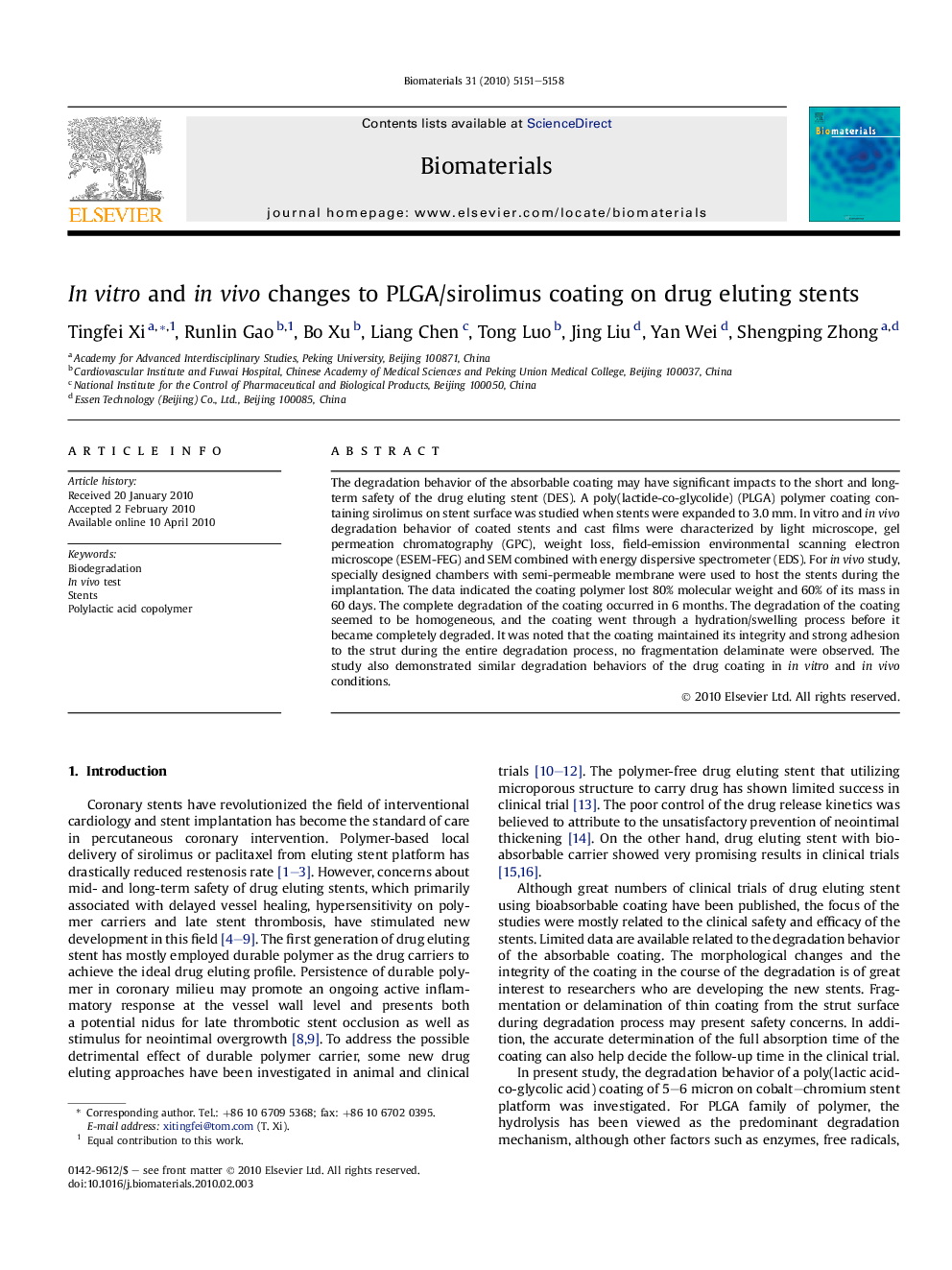| Article ID | Journal | Published Year | Pages | File Type |
|---|---|---|---|---|
| 8378 | Biomaterials | 2010 | 8 Pages |
The degradation behavior of the absorbable coating may have significant impacts to the short and long-term safety of the drug eluting stent (DES). A poly(lactide-co-glycolide) (PLGA) polymer coating containing sirolimus on stent surface was studied when stents were expanded to 3.0 mm. In vitro and in vivo degradation behavior of coated stents and cast films were characterized by light microscope, gel permeation chromatography (GPC), weight loss, field-emission environmental scanning electron microscope (ESEM-FEG) and SEM combined with energy dispersive spectrometer (EDS). For in vivo study, specially designed chambers with semi-permeable membrane were used to host the stents during the implantation. The data indicated the coating polymer lost 80% molecular weight and 60% of its mass in 60 days. The complete degradation of the coating occurred in 6 months. The degradation of the coating seemed to be homogeneous, and the coating went through a hydration/swelling process before it became completely degraded. It was noted that the coating maintained its integrity and strong adhesion to the strut during the entire degradation process, no fragmentation delaminate were observed. The study also demonstrated similar degradation behaviors of the drug coating in in vitro and in vivo conditions.
